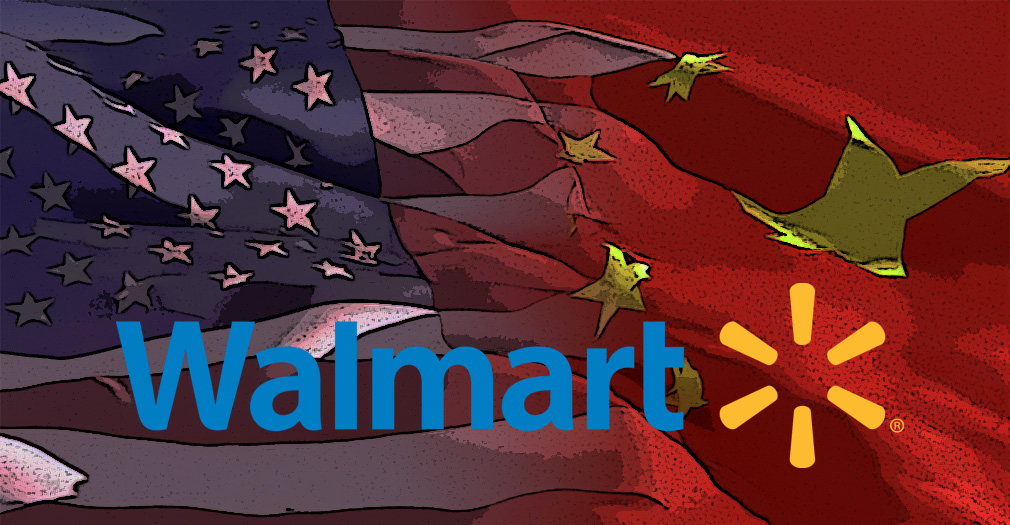
2025 Reasonable Consumer Quiz
See how you stack up.
TINA.org finds more of the same – and then some – from retail giant.
Marketing products as Made in USA has long been an incredibly popular and effective marketing tool. And as tariffs drive up the cost of imported goods, Made in USA products are in even higher demand, a fact that deceptive marketers seem keenly aware of.
Fortunately, the FTC has signaled that reining in this deceptive tactic is a priority.
In July, one week after FTC Chair Andrew Ferguson proclaimed July 2025 “Made in the USA” Month, FTC staff sent warning letters to several companies regarding deceptive Made in USA marketing. In addition, the agency sent letters to Amazon and Walmart – the largest and one of the largest online marketplaces in the U.S. – explaining the FTC’s “Made in USA” requirements and how they apply to online marketplaces, identifying examples of inaccurate U.S.-origin claims on each of their websites, and urging them to “monitor, identify, and take corrective action against third-party sellers who make false or misleading ‘Made in USA’ claims” on their platforms.
In the case of Walmart, the subject of multiple TINA.org investigations that have uncovered hundreds of false and deceptive Made in USA claims on its website, this move is noteworthy for a couple of reasons. First and foremost, it has revealed more than just a Made in USA problem; it has led to TINA.org uncovering an imposter issue on the retail giant’s site. And second, it may signal a shift from how the agency has historically approached Made in USA marketing on online marketplaces.
In its July 2025 letter to Walmart, the FTC pointed to several specific listings on the Walmart site as examples of “third-party sellers [that] have used your online marketplace to make unqualified United States origin claims … even though the third-party is based outside the United States or the product listing describes the items as ‘imported.’” One of the examples provided was a listing for a “BenShot ‘Merica Rocks Glass with Real 0.45ACP Bullet” from a “China-based seller advertising whiskey glasses as ‘Made in the USA.’”
The problem? BenShot is an American company based in Wisconsin that actually makes its glassware in the United States, does not sell its products on Walmart.com, and has not shipped any of its whiskey glasses or other products to China, according to BenShot CEO Ben Wolfgram. In other words, it appears the China-based seller listing the BenShot glass noted in the FTC’s letter was an imposter.
While the specific URL listed in the FTC’s July letter is no longer operational, there continue to be numerous listings on Walmart.com for purported BenShot products, the majority advertised as “Made in the USA” in the product title but none of them sold by BenShot itself.
Once discovering this puzzling and concerning issue, TINA.org tried to determine what product would be delivered to consumers who ordered a BenShot glass from the Walmart site. To that end, we ordered five purported BenShot glasses from Walmart on July 17, 2025 but received none of them (though we did receive refunds from Walmart and a short apology from the company that “things didn’t work out.”)
Why we didn’t receive any of our Walmart orders remains unknown.
What we do know, however, is that Walmart doesn’t only have a Made in USA issue on its site, it also appears to be allowing violations of the FTC’s impersonation scam rule, which prohibits entities from falsely posing as a business.
In 2015, TINA.org investigated Walmart for false and deceptive Made in USA claims and, after identifying 200 Made in USA misrepresentation on its website, filed a complaint with the FTC. Three months later, the agency sent Walmart a closing letter notifying the company that it would not be pursuing an enforcement action due to Walmart’s assurances that it had removed all U.S.-origin representations from its website. But TINA.org continued to investigate Walmart, continued to find a multitude of Made in USA marketing issues on the platform, and continued to alert the FTC. But no enforcement action was ever taken.
Fast-forward to 2025, and the FTC is now informing Walmart that its website contains problematic Made in USA claims that may not only violate FTC law, but its own internal policies as well, and urging the company to take corrective action. The agency has issued the same warning to Amazon (which last week agreed to pay $2.5 billion to settle an FTC lawsuit alleging it tricked consumers into enrolling in its Prime membership). What will happen if the platforms don’t take heed? Only time will tell, but TINA.org will be watching.
When TINA.org first alerted Walmart to false and deceptive Made in USA claims on its site in 2015, the company attributed the USA misrepresentations to “coding errors.”
Shortly thereafter, following TINA.org’s complaint to the FTC, Walmart added an ineffective and inconspicuous Made in USA disclaimer to listings stating:
For certain items sold by Walmart on Walmart.com, the displayed country of origin information may not be accurate or consistent with manufacturer information. For updated, accurate country of origin data, it is recommended that you rely on product packaging on manufacturer information.
Translation: Don’t rely on Walmart.com to tell you the truth.
About five years later, Walmart then attempted to redefine what it means to be Made in USA rather than ensure statements on its website comply with the FTC’s definition of USA-made.
Then, just last month, when TINA.org contacted Walmart about a different marketing issue, the company responded that it “expect[s] sellers and suppliers to provide accurate and honest descriptions about their products.”
In other words, more than a month after receiving the FTC’s latest letter identifying examples of inaccurate marketing statements on its website, Walmart’s policy vis-à-vis third-party claims still appears to be: Trust but don’t verify. Will this M.O. be permitted to continue?
Walmart did not respond to a TINA.org request for comment (and its silence is deafening).
Find more of our coverage on Made in USA and imposter scams.
See how you stack up.
TINA.org has tracked more than 150 lawsuits alleging greenwashing.
Comparing the amount companies agree to pay to settle deceptive marketing charges with their annual revenue.


